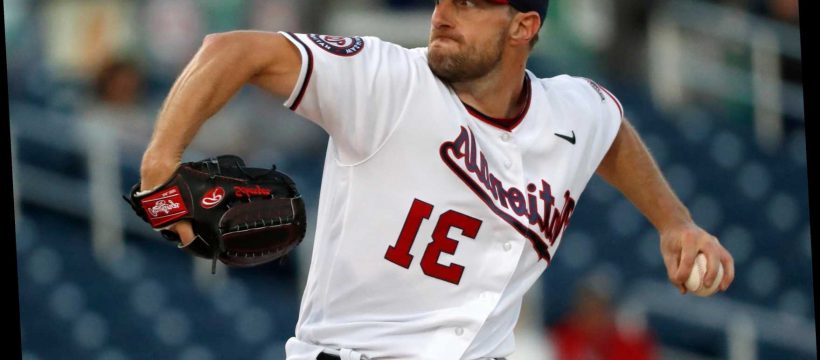If the players and owners are running out of time to restart the 2020 baseball season by early July, they sure don’t appear to be running out of words.
The tense negotiations exploded once more Wednesday night when Nationals veteran pitcher Max Scherzer, a member of the Major League Baseball Players Association’s executive subcommittee, tweeted that the players would not be amenable to a pay cut beyond their prorated salaries.
“After discussing the latest developments with the rest of the players there’s no reason to engage with MLB in any further compensation reductions,” Scherzer, a three-time Cy Young Award winner, wrote on Twitter. “We have previously negotiated a pay cut in the version of prorated salaries, and there’s no justification to accept a 2nd pay cut based upon the current information the union has received.
“I’m glad to hear other players voicing the same viewpoint and believe MLB’s economic strategy would completely change if all documentation were to become public information.”
On Tuesday, MLB presented to the players a sliding-scale proposal in which the players making the most money would lose the highest percentage of their pay. The PA did not like that idea at all, and Scherzer expressed that sentiment quite forcefully and publicly. A counter proposal, expected by the end of the week, will feature a schedule with more than 100 games, a sizable increase from the owners’ suggestion of 82 games. Many union members also appear amenable to deferring player salaries.
As Scherzer referenced, at the end of March the two sides negotiated a deal that guaranteed the players a $170 million lump sum payment as well as service time even if the coronavirus pandemic canceled the season — and prorated pay if the coast cleared for a shortened campaign. That agreement also featured language that called for a reconsideration of players’ salaries if circumstances prevented paying fans from attending the games, as is currently the case, and that reconsideration led to this standoff.
The players have been reluctant to sign off on further income cuts without getting a substantive look at the teams’ finances, as Scherzer also referenced; this has been a bone of contention for as long as the union has existed.
In order to start the season by early July, as is the current desire, and get spring training ready for mid-June, the players and owners would likely have to find common ground by the end of the next week.
— With Joel Sherman
Source: Read Full Article

